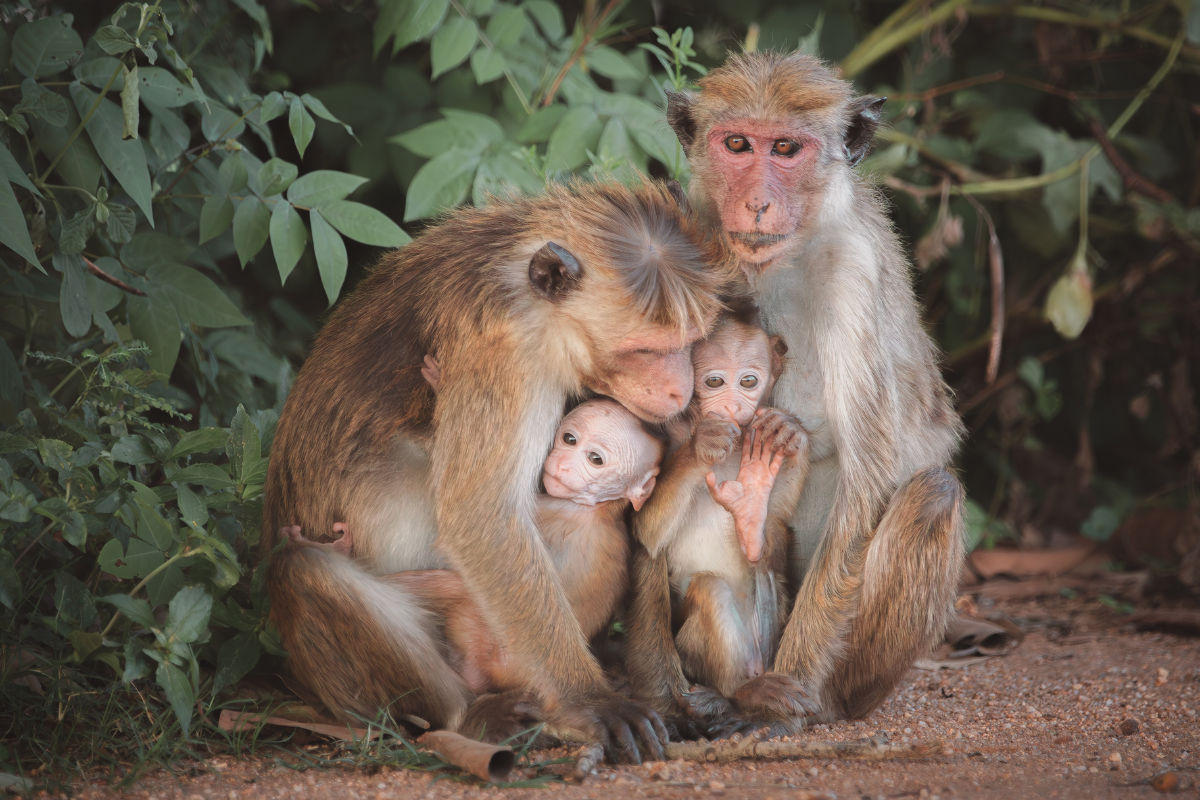In communities in Georgia and Texas, residents are fuming over proposed monkey breeding facilities seeking to raise thousands of primates for invasive biomedical research.
And Friends of Animals—which manages Primarily Primates, a Texas-based sanctuary for primates discarded by the biomedical research and entertainment industries as well as the exotic pet trade—couldn’t agree more with their opposition.
Primates have rich emotional and social lives, and they suffer greatly when exploited as test subjects in laboratory experiments.
It comes as no surprise to our allies at the American Anti-Vivisection Society that a new company called Safer Humane Medicine—incorporated only last February—is trying to open a monkey breeding facility in Bainbridge, Georgia, that could hold 30,000 primates. This comes on the heels of one of the largest companies in the industry—Charles River Laboratories—trying to build a similar facility in Brazoria County, Texas, which would hold 43,000 primates.
“The biomedical community has been claiming for quite a while that there is a shortage of monkeys to use in research and that there are too few transport companies willing to move primates for use in research,” said Crystal Schaeffer, director of outreach for AAVS. “Unfortunately, National Institutes of Health wholeheartedly supports expanding primate breeding and research; it has asked Congress to allocate $30 million in its FY24 budget to do just that.”
Government reports blame China’s export ban that started in 2020, which cut the U.S.’s imported monkey supply by 60 percent.
Furious neighbors and elected officials in Houston succeeded in getting a resolution passed urging federal and state agencies to deny permits for the primate facility. Charles River Laboratories has now put its plans on hold.
That’s music to our ears. But there is still work to be done.
AAVS is pushing Congress not to bow to pressure from animal research lobbying and interest groups by supporting primate research and ignoring the ethical, scientific and economic concerns surrounding this flawed science. Luckily, the Senate Appropriations Committee has yet to approve the $30 million for the NIH to renovate, expand and build new infrastructure at its National Primate Research Centers. This support will expand primate breeding efforts and increase the use of primates in invasive research in the U.S., perpetuating a reliance on animal models that are unreliable and not applicable to human disease.
You can contact your U.S. Senators and urge them to remove NIH funding from the federal budget that would increase primate research. You can find their contact information here: https://www.senate.gov/senators/senators-contact.htm.
In its report, the Appropriations Committee wrongly states that animal models contribute to “understanding the biological processes that cause disease, which is necessary for the development, safety, and efficacy testing of new therapeutics.”
AAVS points out that more than 90 percent of new drugs tested on animals, including primates, fail in human clinical trials, a widely acknowledged statistic in the regulatory and biomedical research communities.
Congress should help reduce the reliance on animals in science by providing funding for the use and development of human-based models of disease that produce data that can be directly utilized to gain greater understanding of human biological systems and create new drug treatments.
“These alternatives are fascinating and show tremendous potential to replace animals in research sometime in the future,” Schaeffer said.
One type of alternative that has shown great potential is microphysical systems (MPS), more commonly called organs-on-chips. With this technology, micro-chips are lined by human living cells that closely mimic the key physiological functions of body organs. More than 15 different organ chip models have already been developed, including chips that mimic the lung, intestine, kidney and bone marrow.
The organs-on-chips technology was developed by the Wyss Institute, which is also developing an alternative to mimic human organ systems working together, or what they call bodies-on-chips.
The company reports that organ chips have been installed in more than 150 labs including 17 of the top 25 global biopharmaceutical companies, used by the FDA to study the safety of COVID-19 therapeutics and vaccines, and even used in experiments in space.
The Institute is now using organ-chips to conduct vital research on a wide range of human diseases and possible treatments for them, including COVID 19, influenza, malnutrition, radiation exposure and cystic fibrosis.
That’s good news for primates.
And so is public backlash against monkey farms. We hope local opposition in Bainbridge, Georgia can sink the monkey breeding plan before construction of a facility begins.
A bit of welcome news came last week: The agreement granting Safer Humane Medicine tax breaks would be voided because the city and county commissioners didn’t properly notify the public before approving it in December.

